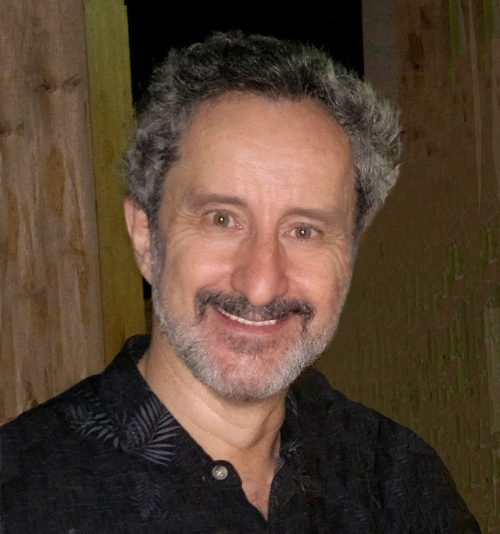CBI makes the following representative available for speaking engagements at conferences, events, and meetings:

Steve Olweean
Founding Director and Coordinator of Programs
Steve Olweean speaks on a variety of related topics, including concepts of “the Other;“ dynamics of fear, social paranoia, and fear-based belief systems; negative stereotypes, prejudice, and the creation of enemy images; victim-perpetrator dynamics; communal and transgenerational trauma; social healing; conflict transformation; and local capacity building at both the grass roots and social institutional level.
He is a therapist with a graduate degree in Clinical Psychology from Western Michigan University, with over 30 years of experience in community-based mental health treatment, administration, and advocacy to underserved populations; has worked in outpatient, inpatient, day treatment, outreach and crisis intervention to high risk populations, and private practice settings; and has held positions as clinical director, clinical supervisor, and senior clinician. He has been a field supervisor for graduate departments of psychology and social work, and is a Clinical Faculty Member with Michigan State University Department of Psychiatry. His principal areas of treatment are trauma and abuse recovery, victim/perpetrator dynamics, the formation and healing of negative belief systems, and interpersonal communications.
He specializes in addressing communal and transgenerational trauma; conflict transformation; local capacity building, empowerment, and resilience building for marginalized and at-risk populations, and in designing emergency human service training and treatment programs for societies where there is a large population in crisis, where the service infrastructure is seriously underdeveloped, compromised by catastrophe and upheaval, or nonexistent, and where skill and hard resources are scarce.
For 15 years, beginning in 1990, he was coordinator and developer of the Soviet-American Professional Exchange, established in the early 1980′s as one of the 1st grassroots professional human service exchanges with the then Soviet Union, promoting bridge building through citizen diplomacy and providing practical training in human services to Soviet colleagues.
Immediately following the 1st Gulf War he assisted Kuwaiti relief organizations in linking with professional mental health services, and provided cultural orientation and consultation to visiting trauma therapists from the US and Europe traveling to Kuwait to ensure cultural sensitivity, receptiveness to services by trauma victims, and improved treatment effectiveness.
Particularly since 9-11 he has spoken and been interviewed frequently both in and outside the US to increase understanding among the public of Middle Eastern Culture, social/psychological dynamics of fear and communal paranoia, polarization and the formation of enemy images, and to promote direct, cross-cultural dialogue as an antidote to the toxic energy of fear. He also addresses activism in Humanistic Psychology through putting humanistic principles to work in the world improving psycho-social conditions, and has published on the above speaking topics.
Near the end of the Balkan Wars Olweean developed the integrated Catastrophic Trauma Recovery (CTR) treatment and training model for treating large civilian populations traumatized by war and violence in societies that are regions of conflict and where resources are scarce, as described in a chapter dedicated to it, “When Society Is The Victim,” in an edited book by Dr. Stanley Krippner and Dr. Teresa McIntyre on: “ The Psychological Impact of War Trauma on Civilian Populations.”
The CTR model is the basis for the comprehensive Social Health Care (SHC) training and treatment program Common Bond Institute developed to train hundreds of local medical students, professionals, NGO staff, and members of refugee communities in Jordan in trauma informed treatment skills to assist refugee and at-risk populations in the region, and to promote development of the local human service and academic system. The program is described in a contributed chapter titled, “Whole Person Approaches To Healing Communal Trauma,“ to an edited book by Serlin, Krippner, and Rockefeller on: “Integrated Care of the Traumatized: A Whole-Person Approach.”
In 2021 he co-founded and co-edits the International Journal of Communal and Transgenerational Trauma, a peer-reviewed journal reflecting a whole-person, cross-cultural perspective and exploration of the psycho-emotional trauma experience, from the individual to the communal.
Current writing projects are: “Meaning and the Evolution of Personal Beliefs Systems: The Process of Forming, Developing, and Maintaining Beliefs,“ and “Engaging The Other: The Power of Compassion.” The impetus for the writing on Engaging The Other and on the creation of the Annual International Conference on “Engaging The Other” is a chapter he contributed immediately after 9-11, titled “Psychological Concepts of The Other: Embracing the Compass of the Self,” to an edited book by Dr. Chris Stout on: “The Psychology of Terrorism.”
He has been an activist in the human rights and peace movement since his university years, and this commitment and experience continue to inform his work today.
- Founding Director of Common Bond Institute, and Coordinator of programs, as described in a chapter devoted to his life-long work and CBI in “The New Humanitarians,“ by Dr. Chris Stout.
- Founding President of the International Humanistic Psychology Association (IHPA).
- Founding Co-Editor of International Journal of Communal and Transgenerational Trauma
- Recipient of the 2011 Charlotte and Karl Bühler Award from the American Psychological Association for outstanding and lasting contribution to Humanistic Psychology internationally.
- Recipient of the annual Hearthminder Award from the Association for Humanistic Psychology.
Contact Information:
Steve Olweean
Director and Coordinator of Programs, Common Bond Institute (CBI)
President, International Humanistic Psychology Association (IHPA)
E-mail: SOlweean@aol.com
Cell/WhatsApp: 1-269-501-5453
VoiceMail: 1-269-665-9393
